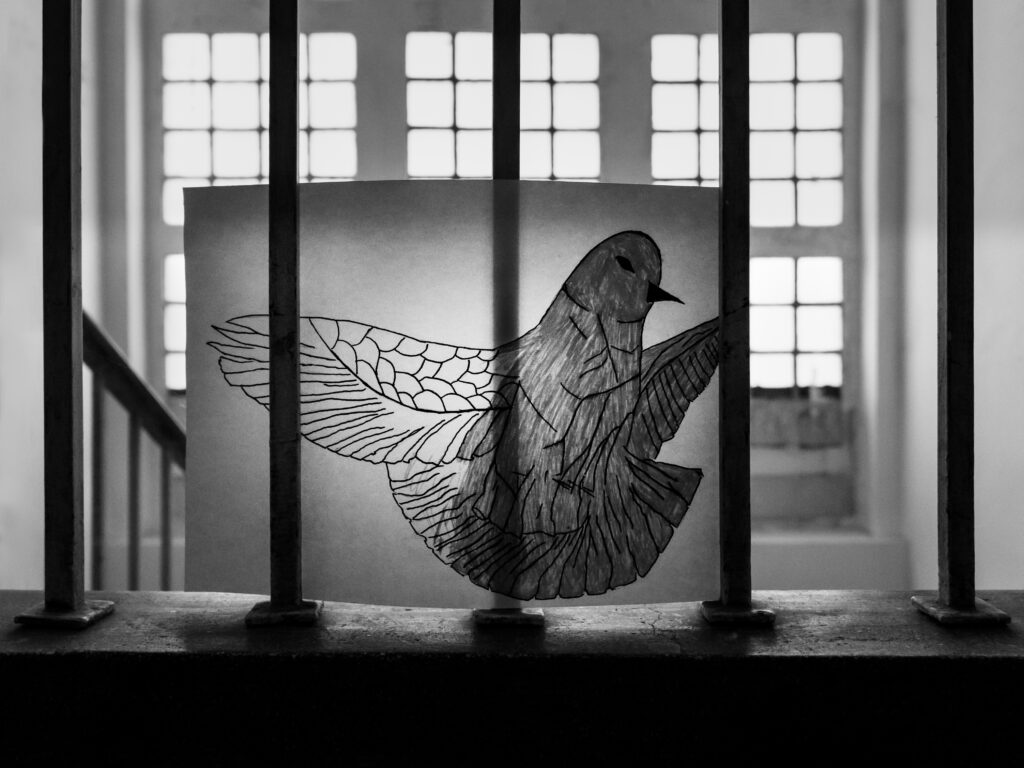The moral aspect of prison treatment implies the recognition of the convicted person as a moral agent who has made a mistake and who has, not only the duty to make amends but also to reflect on their mistake through the perception of themselves as a moral agent. Identity transformation involves accepting duty, responsibility, and freedom for redemption, and prison treatment should make such a goal attainable. The deterioration of the perpetrator of the criminal act as a moral being under circumstances that represent an attack on their moral integrity increases the risk of negative scenarios and the probability of return. Empowerment in the direction of moral action implies protective factors that encourage feelings of competence, motivation and goals for the future. A positive moral climate in prison communities provides an opportunity to find one’s own capacity for change, both personal and changing the circumstances that potentially lead to distress, despite the situational strength of the environment.

Photography: Ana Batrićević, Artwork made by a convict, District Prison in Belgrade, 2023.
In the context of institutions for the execution of criminal sanctions, demeaning convicted individuals as personalities sends an extremely powerful message, as it actually represents the condemnation of the community expressed through the actions of penal institutions. Such an attitude towards convicted individuals rejects Kant’s belief that the “predisposition to the good” can never be completely lost, as well as that respecting the perpetrators of criminal acts as moral agents is at least one of the functions of punishment. Namely, the punishment should contain a message that encourages the perpetrator of a criminal act to reflect on their wrongdoing and dedicate themselves to self-reform, both in the context of breaking the law and in the context of moral guilt.
A punishment that inhibits the ability for moral reflection, not only because of its severity, but also because of the conditions under which it is carried out, does not reduce the capacity of convicted persons for self-reflection and moral reform, but rather their motivation to understand why their behaviour is wrong. Therefore, it should be emphasised that the relationship between the state and institutions for the execution of criminal sanctions towards convicted individuals should not be a limiting factor in the possibility of personal transformation for convicts if it is not already part of the process of their moral reform. Additionally, to the traditional retributive demand that the punishment be proportionate to the crime severity, the requirement should be added that punishment should not be designed in a way that undermines the prospects for the rehabilitation of convicted individuals. The conditions under which punishments of equal type and measure are executed can differ significantly, which will also affect the outcomes of the process of moral self-reflection and transformation in several ways. The inadequacy of the punishment (severity) and the conditions of its execution (humiliation) result in the feeling of social rejection, abandonment of personal change and adoption of the label of unredeemability. Such a state produces negative feelings such as bitterness and hatred, not only towards the community within the institution for the execution of criminal sanctions but also towards the wider social community, its values and rules. Understanding the intended and unintended side effects of deprivation of liberty has serious implications for the treatment of convicted persons and the reduction of recidivism rates. Even the best-designed programs for working with convicted persons, such as their education or professional training, can be systematically undermined due to the negative consequences of the very process of incarceration.
The indirect and more subtle causes of suffering and degradation of convicted persons include moral violations of personality that may remain hidden behind seemingly correct living conditions in institutions for the execution of criminal sanctions. The lack of genuine concern for convicted individuals does not solely involve dehumanizing treatment or behaviour, nor rude or cruel conduct. Unquestionably, cases of abuse of convicted persons, as well as highly inappropriate behaviour by representatives of executive authority, must not be overlooked, as they are often present within the “broader institutional culture of abuse”.
According to the need to establish the moral dimension of prison life through relationships of respect, preservation of dignity and integrity, we can distinguish between the process of rehabilitation designed to enhance the professional knowledge and skills of convicted persons and the process of moral reform, which includes changing identity traits – a transformation from a criminal to a non-criminal self. At the same time, it should be emphasised that recognising one’s own criminal choices as wrong constitutes the essence of the moral (self) reform of convicted persons.
Olivera Pavićević
